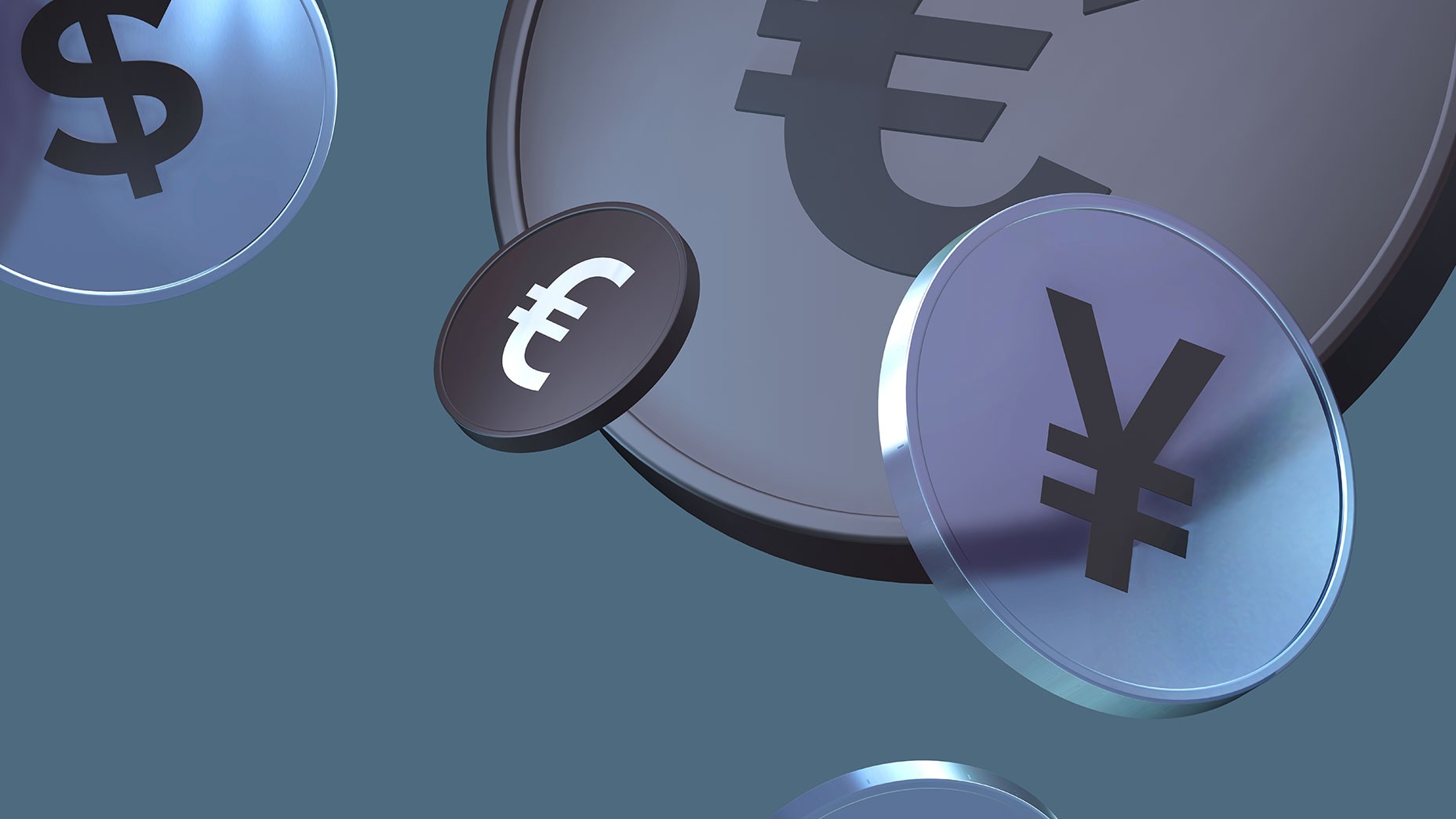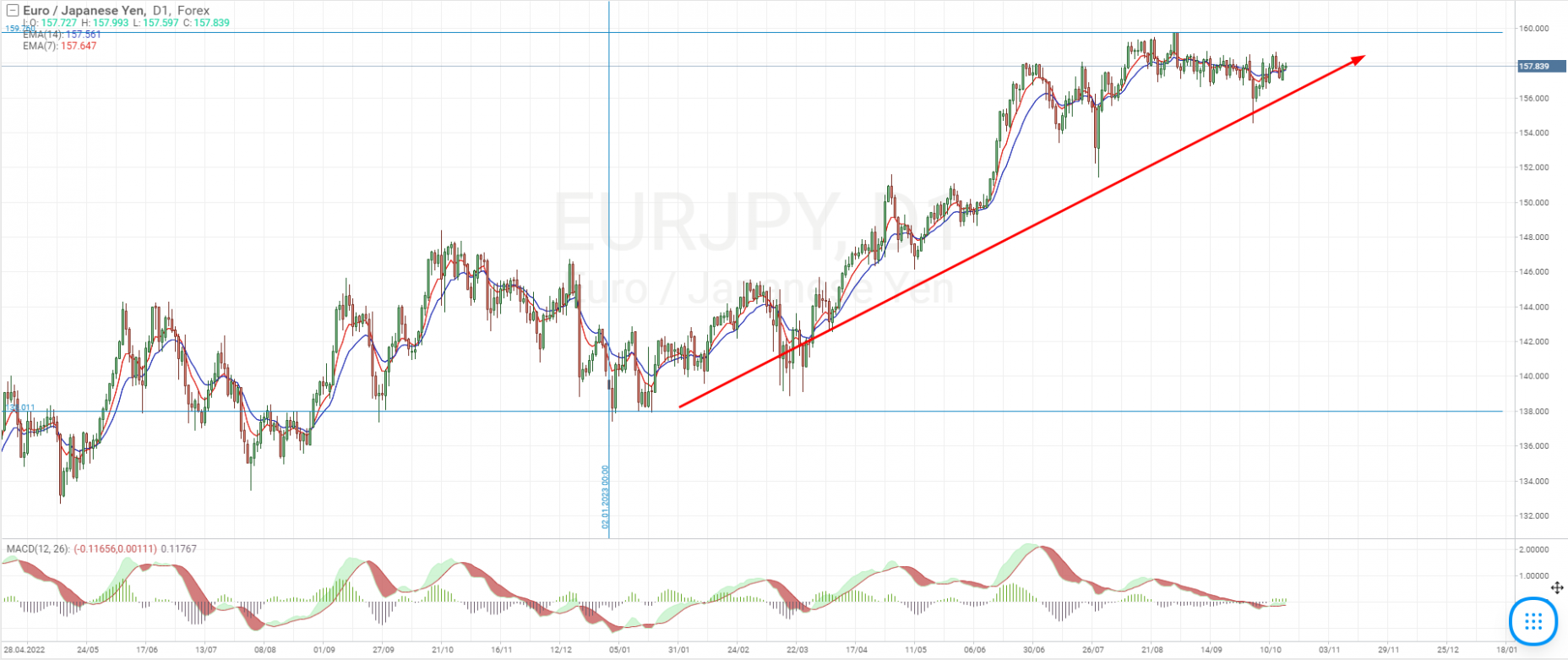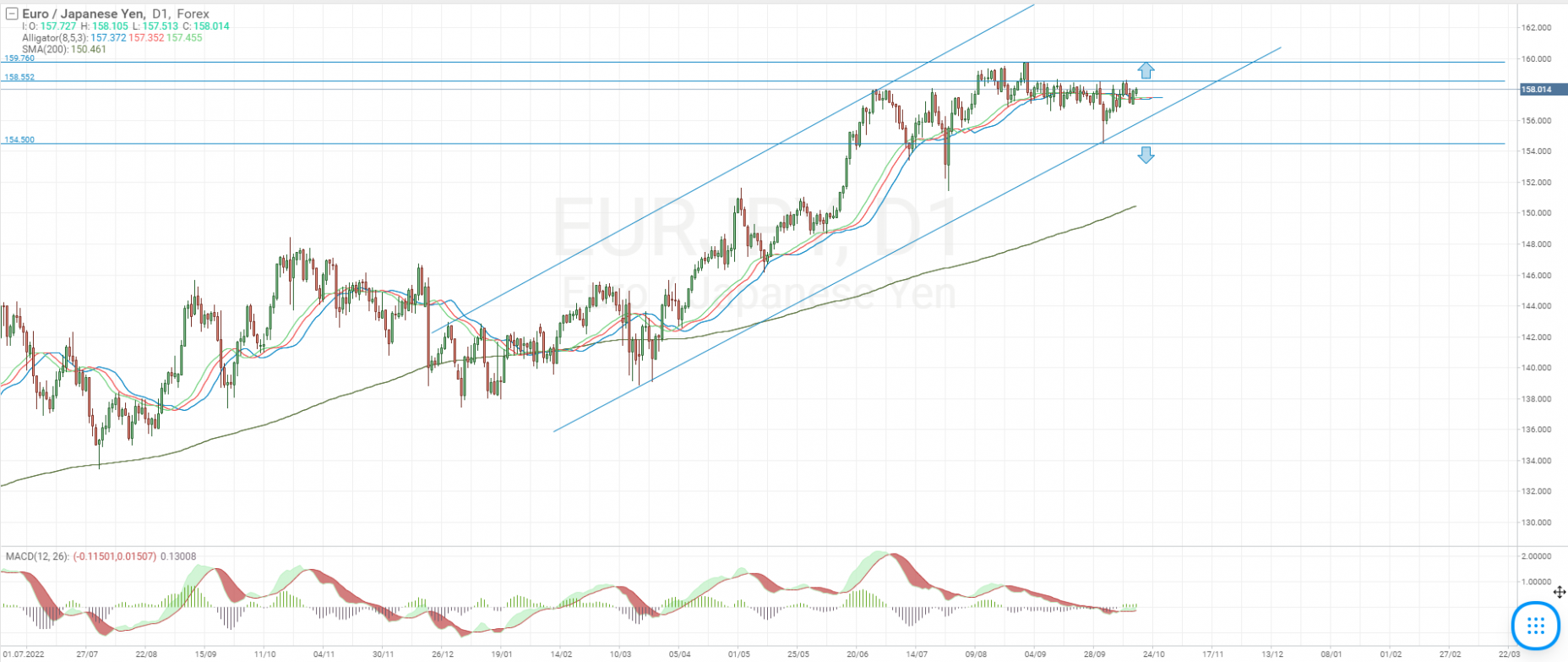EUR/JPY Forecast: Will the Currency Pair’s Growth Continue in 2023?

7 minutes for reading
The EUR/JPY pair is among the most demanded and popular currency pairs in the international foreign exchange market. In this article, we will examine the primary factors affecting the EUR/JPY exchange rate, analyse its performance in 2023, and explore the short-term and medium-term forecasts provided by experts.
You can visit the RoboForex Market Analysis webpage for the latest forex forecasts.
Overview of the EUR/JPY currency pair
The EUR/JPY pair is a cross-currency rate composed of the two popular currency pairs, EUR/USD and USD/JPY. A cross rate is the value of one country’s currency denominated in another country’s currency. It is determined based on its value against a third currency, namely the US dollar, traditionally considered the primary international reserve currency.
The EUR/JPY exchange rate reflects the relative strength or weakness of the common European currency (EUR) against the Japanese yen (JPY). In this pair, the euro is the base currency, and the current price reflects how many yen are needed to buy or sell one euro. When the pair quotes go up, it indicates a strengthening euro, and when they drop, it signifies a weakening euro against the yen.
Trading characteristics of the EUR/JPY pair
- The yen exerts the most significant influence on the currency pair’s performance. If there is a strong directed movement of the JPY, the pair’s quotes are likely to follow it
- The pair is traded round the clock from Monday to Friday, with the highest activity observed during the Asian, European, and American trading sessions
- The EUR/JPY pair experiences high daily volatility, typically around 1,000 pips
- Thanks to its popularity and high liquidity, the spread for this pair ranges from 10 to 15 pips on a quiet market
Fundamental factors influencing the EUR/JPY quotes
The European Central Bank’s monetary policy
The European Central Bank has been implementing a series of monetary policy tightening measures since July 2022 to curb rapidly rising inflation. During this period, the interest rate has progressively increased from 0% to 4.5%, with the most recent hike of 0.25% in September 2023. Inflation in the eurozone in September 2023 was up 4.3% from the previous year. It is worth noting that there was a more substantial increase of 5.2% in August. The ECB’s primary goal is to achieve a 2% inflation target within its monetary policy framework.
Inflation in Europe is exhibiting signs of slowing growth rates, which might be a reason for temporarily suspending interest rate hikes. At its next meeting on 26 October 2023, the ECB will likely maintain the interest rate at 4.5% to monitor further inflation trends. The regulator currently presumes that inflation in the eurozone will remain above 3% next year, which could potentially support the case for future interest rate increases.
The Bank of Japan’s monetary policy
The Japanese economy has been in deflation for over 20 years. This phenomenon is opposite to inflation, in which the general price of goods and services decreases, negatively affecting the economy’s growth rate. The Bank of Japan and the country’s government have been trying to combat deflation over the years by using a zero-interest rate and implementing a quantitative easing (QE) policy, involving injecting additional monetary funds into the economy.
The yen’s low interest rate makes it attractive for borrowing to fund investments. Core inflation has risen recently in Japan, with the indicator exceeding the central bank’s target level of 2% for 20 months in a row. However, Kazuo Ueda, the Bank of Japan's governor, is not rushing to tighten monetary policy. First, the country has just overcome long-standing deflation; second, export-oriented Japan benefits from a weak national currency as its goods cost less than those of European competitors. Therefore, an interest rate increase may only be expected if inflation in the country rises at an extremely high pace.
Economic development indicators of the eurozone and Japan
- Monetary policies of the European Central Bank and the Bank of Japan: changes in interest rates, QE and QT programmes, foreign exchange interventions
- Unemployment Rate
- GDP Growth Rates (GDP)
- Inflation Indices (CPI, PPI)
- Industrial Production Index
- Retail Sales
- Trade Balance
- A business activity report by the Bank of Japan (Tankan survey)
- Economic Sentiment Indices for the eurozone (ZEW, IFO)
EUR/JPY performance in 2023
Throughout 2023, the EUR/JPY pair has been consistently moving upward. The quotes rose from a low of 138.00, where they stood at the beginning of the year, to a 15-year high of 159.76 in late August. The lack of clear signals from the Bank of Japan indicating potential monetary tightening exerts pressure on the yen, driving the currency pair’s quotes further up.
At the same time, the ECB has been actively raising interest rates throughout 2023 in response to mounting inflationary pressure. The difference between the rates resulted in the further weakening of the yen and the gradual growth of the pair’s exchange rate. At the time of writing on 17 October 2023, the quotes were trading at 158.00, close to their annual high.

EUR/JPY live chart
EUR/JPY technical analysis
The EUR/JPY pair has been showing steady growth since January 2023, moving in the ascending daily channel. In late August, the quotes reached an annual high of 159.76, followed by a downward correction, with the price hitting a local low of 154.50. This is currently a significant support level.
If the daily closing price goes below 154.50, this may signal a potential end of the uptrend and a decline to the next support level of 151.60. Should the price continue to rise and close the day above the local resistance level at 158.60, an annual high of 159.76 is likely to be tested. The Alligator indicator and the 200-day SMA support the uptrend.

EUR/JPY forecasts for 2023
- Specialists at the LeoProphet portal expect the EUR/JPY quotes to hover near 153.91 at the end of 2023
- ING Group’s specialists believe that the currency pair will end this year near the 157.00 mark
Long-term EUR/JPY forecasts
- Economy Forecast Agency (EFA) analysts predict that the euro-to-yen exchange rate will reach 171.90 by the end of 2024, 182.70 by the end of 2025, and 187.90 by the end of 2026
- According to the Wallet Investor portal, the pair will continue an upward rally, reaching 170.12 by the end of 2024 and 180.03 by the end of 2025
Summary
The EUR/JPY currency pair has been showing a steady upward movement in 2023, hitting its highest value since 2008. Growth is supported by a big difference in the interest rates between the ECB (4.5%) and the Bank of Japan (−0.1%). The uptrend persists, and the pair’s quotes could rise further if the European regulator continues to hike interest rates while the Bank of Japan refrains from doing so. Should the interest rate differential start to diminish, the uptrend will be expected to end with the quotes reversing downwards.
FAQ
Why is forecasting EUR/JPY important?
Forecasting is essential for strategic planning and risk management, helping investors predict possible movements of the currency pair.
What methods are used to forecast EUR/JPY?
Commonly employed methods include fundamental analysis, technical analysis, and sentiment analysis.
How accurate are EUR/JPY forecasts?
While forecasting methods have their advantages, they are not entirely reliable. Many factors can affect EUR/JPY and trigger unexpected price movements.
What are the risks in EUR/JPY forecasting?
The primary risk lies in the unpredictability of global political and economic events that can significantly affect the EUR/JPY rate.
What potential future events could trigger EUR/JPY exchange rate changes?
The list of potential events is extensive, including shifts in the monetary policies of the EU and Japanese regulators, considerable fluctuations in resource prices, geopolitical changes, natural and human-caused disasters, and crisis developments in national and global economies.
Will the EUR/JPY exchange rate continue to remain volatile?
Influenced by various factors, the EUR/JPY rate may maintain its volatility.
How does the difference in interest rates affect the EUR/JPY rate?
An increasing interest rate in Japan will contribute to the EUR/JPY downward movement, while an interest rate hike in the EU drives up the pair’s quotes.














